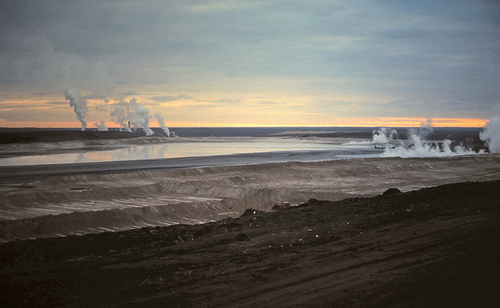
Tar sands excavation north of Fort McMurray, Alberta, in 1981. Despite a recession, the project continues to expand. (Photo by
CanadaGood via Flickr)
Update: Alberta continues fight against EU climate measures and Environment Minister Peter Kent outright lying to Parliament.
I was first introduced to the PR paradox of “ethical oil” when my friend Ben West at the Wilderness Committee went head-to-head with former tobacco industry lobbyist Ezra Levant in a debate on the subject. In this week’s Science Matters column, David Suzuki and Faisal Moola pull apart Levant and his fellow Conservatives’ argument, saying “the ‘ethical oil’ argument they promote has >holes as big as the ones in the ground around Fort McMurray.”
The environmental impacts alone should be a no-brainer. The razing of forests just to drill releases carbon dioxide — and if allowed to expand, an area of boreal forest the size of Greece will be industrialized with little hope of reclamation. The volume of greenhouse gases emitted prevent Canada from achieving any progressive, critical targets on GHG reductions and therefore thwart global efforts to reach consensus. The world’s largest construction project, the tar sands can be seen from space, but its effects are felt right here on earth, and no more deeply than by the First Nations downriver of the project, who are seeing higher than normal rates of rare cancers caused by toxic contaminants. Fish are turning up deformed, the water is polluted, the air is polluted. I see absolutely nothing ethical about this. It’s hypocritical for the Conservatives to suggest that oil from other nations be avoided because of human rights violations or lack of democracy. There is a human rights crisis going on in Prime Minister Steven Harper’s own back yard while his so-called “Environment Minister” Peter Kent claims our source of oil is ethical.
Continue reading Alberta’s tar sands a humanitarian issue, too »
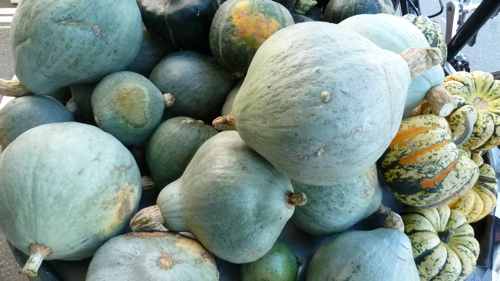
Monoculture, by its very nature (pardon the ironic pun), is not a resilient agricultural system to begin with. More susceptible to disease because of genetic similarity, and terrible for soil health, it’s a venture with growing risks that are starting to outweigh its purported benefits. A new study is warning its lack of genetic diversity puts it at risk from a new enemy that doesn’t discriminate like fungus or insects do: climate change.
If the current reports of species loss around the globe isn’t already freaking you out, taste this:
The genetic diversity of the plants that we grow and eat could be lost forever due to climate change, threatening future food security, the UN’s Food and Agricultural Organization (FAO) said on Tuesday.
Experts from the Rome-based organization warned that the loss of biodiversity will have a major impact on humankind’s ability to feed itself in the future as the global population continues to rise to nine billion by 2050.
“There are thousands of wild crop relatives that … hold genetic secrets that enable them to resist heat, droughts, salinity, floods and pests,” FAO director general Jacques Diouf was quoted in the report as saying.
“Increasing the sustainable use of plant diversity could be the main key for addressing risks to genetic resources for agriculture,” he said. (Vancouver Sun)
Continue reading Why we need biodiversity, not monoculture »
It’s the day after Earth Day and I’m on my favourite North Shore bus route. Lined by trees most of the way, including a park ravaged in the windstorm of a few years ago and a protected habitat area with beautiful deciduous trees, the two-lane Dollarton Highway can feel like a backcountry road. Certainly in the rear view mirror of my bicycle it can make me pretend I’m somewhere else.
The road was realigned and widened years ago, and I still remember the disappointment and shock I felt in staring at this huge, ugly, wrecked swath where they had pummeled through what I can only assume was old-growth forest. I had forgotten the image until a reminder came today.
Developers have been clear-cutting small chunks at a time to build two-story business operations. They’re not the ugliest buildings in the world and they did a fine job of either keeping perimeter trees or replanting, which is more than I can say for most areas. It’s a beautiful road, even, as roads go with its remaining forests. I know one treed part is doomed as it has a Colliers sign on it while the trees are still standing. Today I’m distracted by writing a different blog post on my iPod. In my peripheral vision, something has changed. Massive trees and mangled branches are heaped on bare ground where a magnificent, dense group of conifers had stood untouched for decades. My heart cracks open and a knot grips my throat. I’m paralysed for a moment by an aching sadness that becomes a desire to vomit as I pass existing cleared blocks and those currently spared, beautifully lush but damaged. I am overcome; my lower lip quivers and I wonder if anyone else has noticed the abrupt change and felt similarly.
Where we have something so irreplaceable, and that defines space so dominantly, I can’t grasp why we destroy it for a mere two-story building, parking lots, a gas station, a puny Tim Hortons drive-thru. We ignore opportunities to decrease our buildings’ footprints by building them compact to begin with or replacing old single-story ones with multi-story. There’s no shortage of this activity with houses in older neighbourhoods, so why do we treat our commercial spaces differently? Why are these formerly forested areas being developed now? Does anybody give a damn?
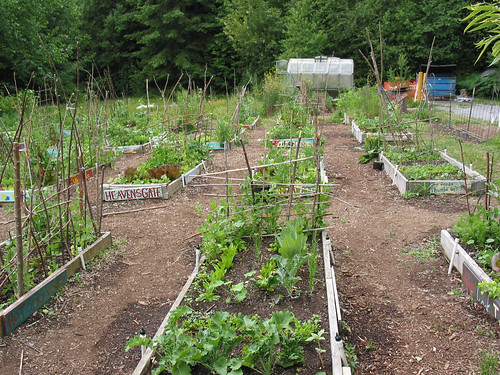
I was criticized once by someone who didn’t believe that my choice to not buy broccoli from China and peppers from California in the wintertime would make any difference. I would indeed be acting alone and in vain if everyone lacked faith in the power of the collective. After all, revolutions and rallies are composed of individual people sharing a common purpose. My argument was that if enough of us did not buy Californian peppers in December, it would affect the amount purchased by the store that carried it, impacting up the chain and so forth. It seems like a naive thought but the popularity of eating local has been growing, and with good reason. Eating local and in season offers many benefits including support of small-scale agriculture and healthier, more flavourful food. In terms of climate change, supporting local agriculture and in tandem avoiding foods — especially processed and pre-packaged foods — that have travelled a long distance make a huge impact. Agriculture is as responsible for greenhouse gas emissions as is transportation, based on a system designed around accessing foods year-round and producing these foods in large quantities to be shipped long distances.
Continue reading Start small, dream big for climate change »
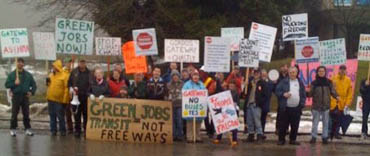
Last Monday’s anti-Gateway demonstration in Surrey; I’m in there somewhere! Photo from GatewaySucks.org
Stephen Rees’s blog has been bursting with exciting news lately, nearly every single post. When I say exciting, I don’t necessarily mean good, but the headlines do indicate multiple turning points in a potentially positive direction in what has so far been a steadfast plot on the part of our provincial and even federal government to proceed with Gateway.* At a time when gas prices have begun to increase once more, international shipping is declining, and peak oil is on the horizon, our provincial and federal governments are teaming up to build more roads and expand the port on the premise that it will create jobs. While I agree that creating jobs in British Columbia is of utmost importance, the economic benefits of redirecting funding toward building transit would more than double the number of jobs — and they would be local. That keeps BC money in BC. In fact, a study by the Canadian Urban Transit Association found that three times as many jobs are created in public transit as highways. Public transit encourages smart growth, reduces congestion and pollution (thereby making a grand step toward the Province’s 33% reduction in GHG goal), and has minimal environmental impacts.
Want to help steer the government away from highway jobs and construction to green jobs and transit, all across Canada? Here are some petitions and events happening right now:
PETITIONS
– Halt the Gateway Project
– Rail for the Valley: bring back passenger rail now
WRITE TO OUR POLITICIANS/MEDIA
– A Green Economy Makes Cents:
“On January 27, our federal government will introduce a new budget and invest billions of your tax dollars on stimulating the Canadian economy. Let’s make sure that as much of the stimulus package as possible is green.” Send a message to Finance Minister Jim Flaherty asking the government to invest in green jobs and green infrastructure. (David Suzuki Foundation)
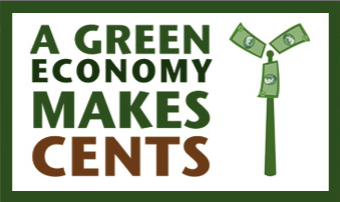
Read my letter. (Americans can use the Wilderness Society’s page to send a letter to Congress on the same issue.)
Continue reading Changing the course of the city and country: green jobs and transit now! »
[Via Donna Passmore]
Dec. 9, 2008
DELTA – The Agricultural Land Commission’s decision to reluctantly hand over prime Delta farmland to Campbell government bulldozers reveals the extent to which the integrity of the farmland protection process has been destroyed, say New Democrat MLAs Charlie Wyse and Guy Gentner.
The commission has reluctantly agreed to remove 90 hectares from the Agricultural Land Reserve so the Campbell government can proceed with its preferred route for the South Fraser Perimeter Road, despite widespread public opposition. The commission said it “deeply regrets that suitable highway alignment alternatives to the use of prime agricultural land were found not to be acceptable from transportation and environment perspectives.”
The news follows last week’s discovery that construction along two sections of the proposed route started before any decision had been finalized.
Continue reading New Democrats slam Campbell’s plan to bulldoze prime Delta farmland »

After two weeks of sunshine I’m surprised to not see “hospital gown green” smog nestled into the corner of our view where Mt Baker peeks out from behind Belcarra’s trees. On this particular day, just a few days ago, Mt Baker is barely visible even in a close-up shot. That has been the case many evenings. Other evenings, as the sun is going down, the glaciers on it are lit up in subtle pink and it resonates against the sky. Sometimes on a clear day I cannot see it at all.
Continue reading Smoggy »
Celsias posted a shocking film, Patent for a Pig: The Big Business of Genetics (43 mins) with some grim truths about Monsanto that are beyond frightening. I find it hard enough to comprehend sometimes that we place a monetary value on something nature alone created, e.g. selling your cat’s litter or some plants that appeared in your backyard. (Breeding/raising is a bit different as there is work input into the result, but it’s still animals creating animals.) I’ll let the film tell the details, with this intro from the Celsias post:
It’s amazing what humankind can do with a little effort and ingenuity. Who’d a thought we could create an intelligent, four legged creature with a curly tail, that actually walks and makes cute grunting noises?
Stand by to be horrified at the lengths Big Biotech will go to take over the world’s food supplies. You’ll also be shocked to learn that pig and cattle farmers are seeing their livestock go sterile due to giving them genetically modified feed.
“Introducing Monsanto, the inventors of the pig…”
Thanks to my mother for the heads up on this item.

It figures it’s been a month and a half since I wrote Part 1 and said it would be “a couple weeks.” I have a legitimate excuse, however: the topic on which I desperately wanted to write was (is!) getting bigger and bigger as news stories and blog posts flooded the papers and internet on the topic. An overwhelming amount of information to sort through, half of it’s out of date by now and much of it I haven’t yet read.
My blogging has been sparse at best lately, and this behemoth of a topic isn’t helping. Of course I’d also like to write about everything! But whilst I muster up the energy/time to do this, here are my key points:
– global food crisis overview
– modern agriculture… permaculture… what our monoculture system + pesticide/herbicide use did to our natural systems: reducing yield, damaging and polluting the earth, losing diversity, bringing in GMO which is proven to harm humans
– hoarding: it’s human nature
– food wastage (also see BBC article)
– oil: peak oil, pesticides, the benefits of local eating
– community and personal gardening
– developers get (potentially large) tax credit by turning land into “public land” while waiting for a project to get underway, then can install a community garden, makes them look socially responsible
PHEW!
Well, now that I’ve got a few hours of my life per week back from the brain-sucking, life-wasting machine called the Television (I watch mostly intelligent programming, but it’s TV nonetheless), I should have few excuses not to sit down and churn this out. Unless, of course, I get distracted by Stephen Rees’s blog.
And now it’s time for bed, but I will leave you with this tidbit and links, and inform you that I’m still alive!
Increasingly, the news in the blogs I read has focused on climate change, biofuels and alternative energy for fueling transportation… and with good reason. We’re faced with a crisis, and we all know that. Many of the solutions already exist, in the past before depedence on oil became the norm for most transportation, and gave us solid plastic, plastic bags, chemical fertilizers, fat-free ice cream (propylene glycol, anyone?), and the American Dream: a big house on a big lot in suburbia. Well, Canadians have made that dream as much of a reality as our neighbours to the south, and in greater Vancouver, the hidden evil of it is present in perhaps no stronger a form than in the suburbs of Surrey and Langley.
Continue reading How the oil crisis will change the face of Fraser Highway »
 Tar sands excavation north of Fort McMurray, Alberta, in 1981. Despite a recession, the project continues to expand. (Photo by CanadaGood via Flickr)
Tar sands excavation north of Fort McMurray, Alberta, in 1981. Despite a recession, the project continues to expand. (Photo by CanadaGood via Flickr)





